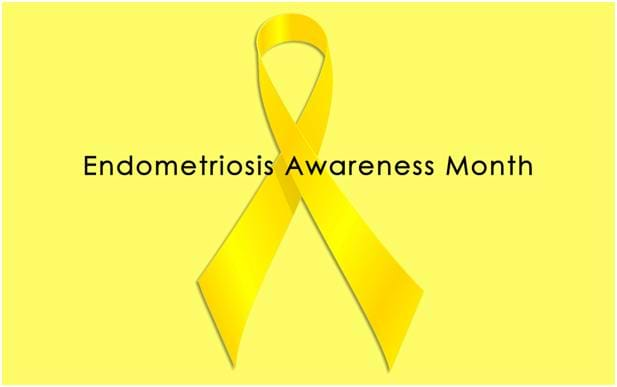March is Endometriosis Awareness Month and I would like to highlight this condition that affects millions of women worldwide.
One in ten women are diagnosed with endometriosis however a significant portion of women with endometriosis are asymptomatic and do not realise they have it or it has been dismissed by general practitioners or other health care practitioners. This means the statistics regarding women with this condition are massively understated.
Did you know that on average, it takes 7-10 years for a woman to receive a definitive endometriosis diagnosis?
Simple key-hole surgery is required to diagnose this condition (laparoscopy and histology), and despite some of the information out there, scans and blood tests will not provide the answer.
If you’ve been following me for a while, you know one of my “things” is the message is that
PERIOD PAIN IS NOT NORMAL!!
Here’s why….. While slight discomfort with a period may be normal, pain (especially bad period pain) is not normal and period pain can be a sign of endometriosis. Whilst the most common symptom of endometriosis is pain, it is also important to be aware that not all women with endometriosis have pain.
Here are some of the common signs of endometriosis :
Period Pain
Pain with intercourse
Ovulation pain
IBS like symptoms
Pain on bowel movement
Bleeding from the bowel
UTI like symptoms (without infection present)
Fatigue
Anxiety and mood disorders
Bloating (can be severe)- also known as endo belly
Musculoskeletal pain
Pelvic and rectal pressure feeling
Abnormal uterine bleeding (AUB)
And many others……
So what is Endometriosis?
Essentially, endometriosis is normal tissue growing in abnormal areas. It behaves very much like cancer, but it is not cancerous. Endometriosis has been found in every part of the body and it can cause damage to multiple organs if it is not managed properly. Recent research points to a genetic component of endometriosis such that if your mother or grandmother had it, you may be more likely to as well. A few misconceptions to clear up. It is driven by oestrogen, even in tiny amounts. You don’t have to be oestrogen dominant. It is also not an autoimmune condition.
Over this month I will focus on the facts of Endometriosis, the serious complications of unmanaged endometriosis and why it is imperative that you consult an expert in this condition. Having a specialist qualifications in Reproductive & Women’s Medicine, I work in conjunction with Australia’s top advanced trained excision surgeons and gynaecologist with advanced training in endometriosis. We work in collaboration to treat endometriosis in a holistic and very effective way.
Whilst all this information sounds overwhelming and depressing… there is hope and help! If you have unmanaged endometriosis or have bad period pain, contact me for a chat, so that we can discuss a pathway forward. You can not manage endometriosis by yourself and it is vitally important for your future health that you consult an expert.
Stay tuned for the next instalment,
Rochelle

